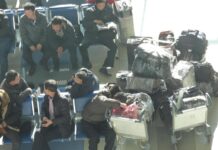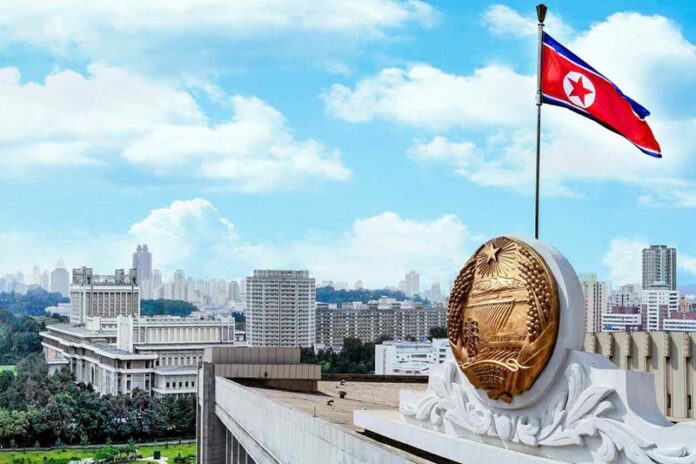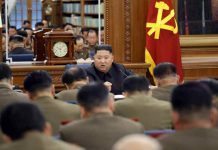Pyongyang police recently arrested members of a gang that allegedly built an organized prostitution network in some of North Korea’s major cities. The gang faces heavy punishment, with their arrest coming as North Korean authorities emphasize more than ever their “struggle” against “non-socialist behavior.”
According to a Daily NK source in Pyongyang on Monday, the Pyongyang branch of the Ministry of Social Security recently arrested the head of the gang — a man in his 40s — and about 30 accomplices for allegedly facilitating prostitution over many years.
The man and his gang are being charged with facilitating prostitution in five major cities: Pyongsong in South Pyongan Province, Sariwon in North Hwanghae Province, Wonsan in Gangwon Province, Hamhung in South Hamgyong Province, and Sinuiju in North Pyongan Province.
The exact scale of their operations remains unknown, but the police in Pyongyang reportedly seized a ledger with records of about 7,000 transactions in Hamhung and Pyongsong and about 6,000 transactions in Sariwon and Wonsan since March of 2019.
Based on this evidence, the police seized a large cache of foreign currency, including about USD 300,000 in ill-begotten gains from the last three years and another USD 20,000 discovered by the police during their raid.
The Pyongyang police have taken a particularly dim view of how — in contrast to individual prostitutes who ply their services in front of train stations or marketplaces — the man’s gang built a network in each region, recruiting as clients high-ranking cadres in major government organizations such as the Workers’ Party of Korea, Ministry of Social Security, Ministry of State Security and prosecutors’ offices, as well as among rich donjuLiterally "masters of money," donju refers to people who hav... More, or North Korea’s wealthy entrepreneurial class.
In particular, the crew sent women from Pyongyang to the homes or secret rendezvous spots of regional cadres or donjuLiterally "masters of money," donju refers to people who hav... More for several days at a time. They collected a commission of USD 100-200 for women in their 20s, and USD 300-500 for 17 or 18-year-old girls fresh out of high school.
The Pyongyang police plan to expand their investigation into those who purchased sex as well. Above all, they plan to launch a joint investigation with major central government agencies, such as the headquarters of the Ministry of Social Security and Central Public Prosecutors Office, since they believe high-ranking cadres are likely implicated.
“On the outside, Pyongyang looks flashy, a place where people loyal to the party and leader live, but if you look inside, it’s as corrupt as it gets,” said the source. “It’s the same in other regions, too, but you really can’t do a thing without money in Pyongyang, so it’s easy to lure women who make little money here.”
Please direct any comments or questions about this article to dailynkenglish@uni-media.net.



















